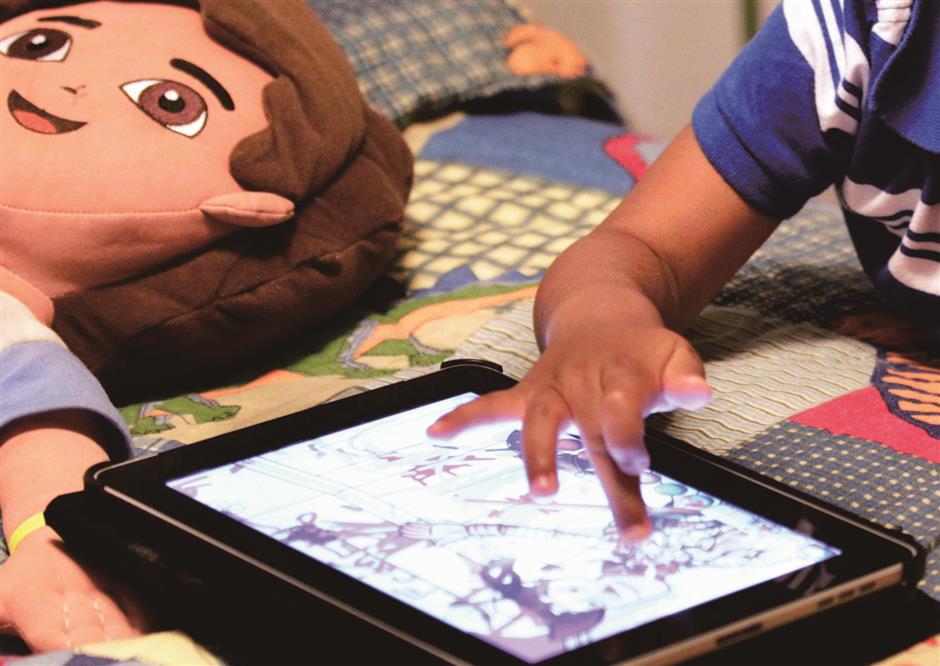A little screen time OK for kids

A child plays with iPad.
Parents of small children have long been hearing about the perils of “screen time.” And the message is getting louder.
But while plenty of parents are feeling guilty about it, some experts say it might be time to relax a little. Go ahead and hand your kid a gadget now and then to cook dinner or get some work done.
Not all kids can entertain themselves quietly, especially when they are young. Try that, and see how long it takes your toddler to start fishing a banana peel out of the overflowing trash can.
“I know I should limit my kid’s screen time a lot, but there is reality,” said Dorothy Jean Chang, who works for a tech company in New York and has a 2-year-old son.
When she needs to work or finds her son awake too early, “it’s the best, easiest way to keep him occupied and quiet.”
She’s not alone. Common Sense Media, a nonprofit group focused on kids’ use of media and technology, said in a report this month that kids aged 8 and under average about 2 hours and 19 minutes with screens every day at home.
That’s about the same as in 2011, although it’s up from an hour and a half in 2013 — the last time the survey was conducted — when smartphones were not yet ubiquitous.
While the overall numbers have held steady in recent years, kids are shifting to mobile devices and other new technologies. The survey found that kids spend an average of 48 minutes a day on mobile devices, up from 15 minutes in 2013.
Kids are also getting exposed to voice-activated assistants, virtual reality and Internet-connected toys for which few guidelines exist because they are so new. Some parents and experts worry that screens are taking time away from exercise and learning.
But studies are inconclusive. Economist Emily Oster said studies have found that kids who watch a lot of TV tend to be poorer, belong to minority groups and have parents with less education — all which contribute to higher levels of obesity and lower test scores. For that reason, it’s “difficult to draw strong conclusions about the effects of television from this research,” Oster wrote back in 2015. In fact, the Common Sense survey found that kids whose parents have higher incomes and education spend “substantially less time” with screens than other children.
For more than a quarter century, the American Academy of Pediatrics held that kids under 2 should not be exposed to screens at all, and older kids should have strict limits.
Even so, guidelines still feel out of touch for parents who use screens to preserve their sanity and get things done.
Jen Bjorem, a pediatric speech pathologist in Leawood, Kansas, said that it’s “quite unrealistic” for many families to totally do away with screen time.
It’s all about balance.
“Screen time can be a relief for many parents during times of high stress or just needing a break,” she said.
“My kids are not any more or less crazy than your average toddlers because we watch a little TV,” said Jenny Hopf, a mother of two who co-founded Momidarity, an online video service connecting moms. “When used at the right time, it’s a lifesaver,” she said.















